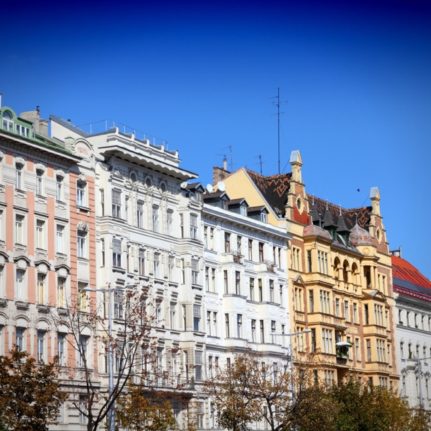The Ukrainian capital Kyiv was not included this year after Russia invaded the country in late February, while Russian cities Moscow and St Petersburg fell in the rankings over “censorship” and the impact of Western sanctions.
Vienna snatched the top spot from Auckland, which tumbled down to 34th place due to coronavirus pandemic restrictions, according to the report by the Economist Intelligence Unit (EIU).

“Vienna, which slipped to 12th place in our rankings in early 2021 as its museums and restaurants were closed, has since rebounded to first place, the position it held in 2018 and 2019,” it said.
READ ALSO: The downsides of Vienna you should be aware of before moving there
“Stability and good infrastructure are the city’s main charms for its inhabitants, supported by good healthcare and plenty of opportunities for culture and entertainment.”
Europe boasted six out of the top ten cities.
The Austrian capital was followed by the Danish capital Copenhagen and Switzerland’s Zurich. Fellow Swiss city Geneva came sixth, Germany’s Frankfurt seventh, and the Netherlands’ Amsterdam ninth. Canada also did well.
Calgary came in joint third position, followed by Vancouver in fifth place and Toronto in eighth.
Japan’s Osaka and Australia’s Melbourne shared the tenth place. France’s capital Paris came 19th, 23 places up from last year.
The Belgian capital Brussels was 24th, just behind Canada’s Montreal. The United Kingdom’s capital London was the world’s 33rd most liveable city, while Spain’s Barcelona and Madrid came 35th and 43rd respectively.
Italy’s Milan ranked number 49, the US city of New York 51, and China’s Beijing came 71st.
Lebanon’s capital Beirut, which was ravaged by a 2020 port explosion and is battling a crippling financial crisis, was not included in the ranking of business destinations.

Neither was the Ukrainian capital Kyiv, after the Russian invasion on February 24 forced the the EIU to abort its survey of the city.
READ ALSO: Five of the best things to do in Vienna this summer
Russia’s capital Moscow saw its liveability ranking fall by 15 places, while St Petersburg slipped by 13 places.
“Increased censorship accompanies the ongoing conflict,” the report noted. “Russian cities are additionally seeing restrictions on culture and environment as a result of Western economic sanctions.”
Other cities in eastern Europe cities were considered less stable following “raised diplomatic tensions” due to the war in Ukraine.
The capital of war-torn Syria, Damascus, retained its place as least liveable city on the planet.



 Please whitelist us to continue reading.
Please whitelist us to continue reading.
Member comments